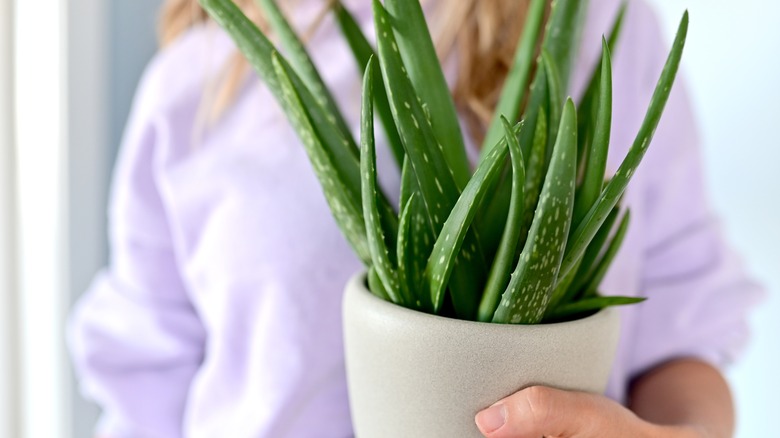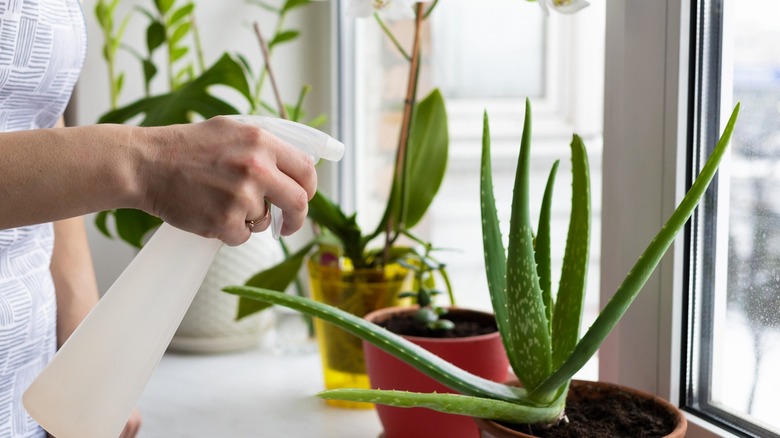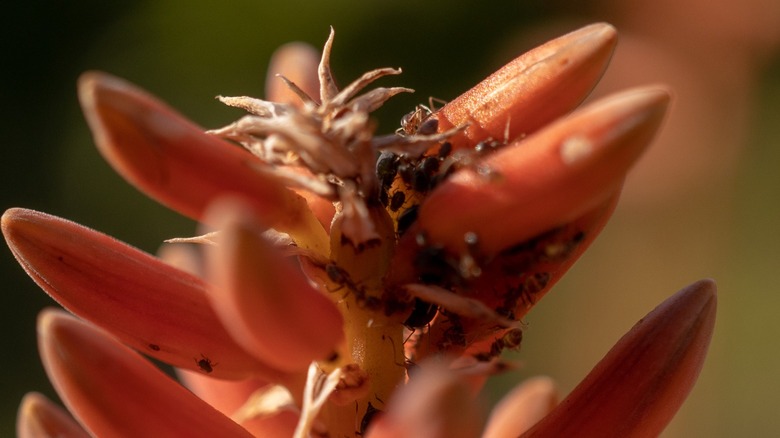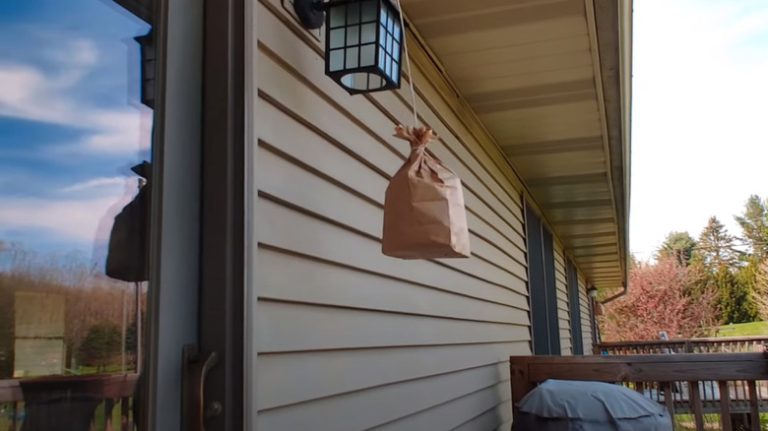Taking care of aloe vera plants is a breeze most of the time, but occasionally they are plagued by a few painfully common pests such as aphids. Aphids also torment gardeners who grow roses, among many other plants. They love the sap in aloe and can infest one literally overnight. In fact, as crazy as it sounds, many females are born pregnant, which means that their numbers can grow very quickly. Therefore, it’s perfectly understandable to value any tips that eradicate these pests, including this one: you can use liquid dish soap and water in a spray bottle to get rid of aphids on your aloe vera plant.
Yes, you heard that correctly. In fact, this tip works on countless common pests and insects, so if this is the first time you’re hearing this, you’re welcome. This could be especially helpful if you’re trying to grow organically, as this is one of the secret weapons of gardeners everywhere. However, neem oil can also be used in the same manner, and this is a more organic solution. At the same time, if you have dish soap on hand and don’t want to spend money on further products, this hack may be the ideal solution for you.
How to use dish soap on aloe for aphids

Start by examining your plants closely in the sunlight about once a week using a magnifying glass. Be sure you check the underside of the leaves in particular. If you see even just a couple of small moving insects, it’s time to spray. Make a solution using only 1 to 2 teaspoons of dish soap and about 1 quart of water in a spray bottle. To avoid burning the leaves, take the plants out of the sunlight in the early evening and leave them out of the sun for the following day.
Spray the entire stems and pay close attention to the underside of the leaves. The entire plant should be dripping when you’re finished. This needs to be done every few days until you don’t see any more bugs. You’ll also need to be extra vigilant and do frequent examinations. It’s really a terrific way to control most insects that plague your plants without using harmful chemicals or pesticides. However, there are a few more things to know about what type of soap to use and some cautions to be aware of.
What soap to use and what else to know

It’s important to take care in what soap you use on your plants, as certain ingredients or too strong of a solution can kill them. You should always test a small part of the plant first, then wait 24 hours to make sure it isn’t going to burn or injure the leaves. The way these soaps get rid of aphids and other insects is by disintegrating the waxy coating of their exoskeletons, thereby killing them. Some brands of dish soap contain ingredients that may break down the cuticle of the plant as well, so these should be avoided. Beware of degreasers and anti-bacterial additives in products.
Regular Dawn dish soap can be used at a recommendation of 2% to 3% in water. It typically won’t harm your plants as long as you don’t have to repeat the steps too often. It’s also recommended that you rinse off the plant afterwards with plain water to remove any soapy residue. Keep in mind it must make contact with the bugs to be effective, so you should try to spray the solution on areas where the bugs are typically found.




